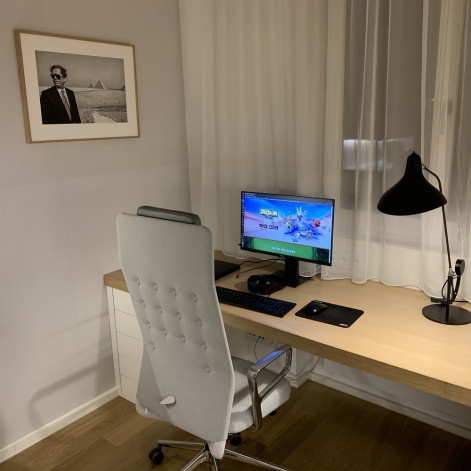The games industry plays host to a colourful cast of diverse individuals, from artists and coders to narrative designers and studio heads.
The skills to pull off these roles, however, are complex and differing, with each position requiring mastery in its field – especially in these complex times we are all living through at the minute.
To highlight some of the brilliant work that goes on behind the scenes as well as how employees around the world are adapting to the life of remote work, PocketGamer.biz is reaching out to the individuals who make up the games industry in our Jobs in Games: Remote Working series.
This week we spoke with Geewa CEO and co-founder Miloš Endrle.
PocketGamer.biz: Can you tell us about your current role and what it entails?
Miloš Endrle: I am the founder and CEO of Geewa, a leading mobile game developer in the Czech Republic, where I oversee the growth of our studio and our mobile games. We are the makers behind Smashing Four, a player vs player (PvP) multiplayer game that is in the top 300 grossing games over the world.
Feedback and data can help you make better decisions and further improve your game and processes.Milos Endrle
How did you first get into games and how did you progress into this role?
I was so lucky that I could work on the things which I like and enjoy a lot from the beginning of my professional career. I started as a software developer of the stock trading system, where I found my love for data.
I then moved to a business architect role where I realised there were gaps between software design and the end customer. This was my motivation to join mobile games development and be closer to the end customer.
What did you study (if anything) to get your role? What courses would you advise for aspiring professionals in the area?
I studied engineering in college and took software development classes. I was so lucky to have a chance to learn skills on ZX Spectrum, which is also where I wrote my first game.
I highly recommend this experience to international developers since English and algorithmization are key for games nowadays and writing a game is the best way to learn these two things. You can easily start online with services like Code Combat.
Do you think there are any misconceptions, public or professional, surrounding your area of expertise?
I think there are misconceptions about the people who develop games coming from certain backgrounds, as well as those who play them. I strongly believe that the best design comes from a combination of different worlds of expertise. For example, in our games, we are trying to break down barriers between casual and core players.
We offer our PvP audience an approachable, casual introduction to the game, which then gradually becomes a more competitive esport experience as they continue to master their skills.
What advice do you have for someone looking for a job in this profession?
Play games: Learn from them by design deconstruction, art style, UX flow etcetera.
Be data-driven: This will help you to bring the best game for players, to measure your progress, improve in-game features and understand your players in a meaningful way. Data can also help you understand the lifecycle of your players and see what game features are resonating with your audience.
Be open to feedback: Feedback and data can help you make better decisions and further improve your game and processes.
Don't be afraid to fail: Hypercasual gaming moves at a fast-pace and is very competitive. Failure helps you learn and understand what works and what doesn't, but don't give up!
Of course, one of the disadvantages is the lack of social interactions which I think are the driver of creativity.Milos Endrle
How has the shift from office to remote working impacted your role, if at all?
Working remotely is part of the culture in our business and for the mobile game industry in general. Many of the partners we work with collaborate with us from various locations around the world including home office environments.
What does your typical day look like when working remotely?
I take a holistic look at our business, see how we are tracking against our goals and check-in with different teams throughout the day such as our producers, who start every day by online standups with their teams. I work closely with our department leaders on their thoughts about the direction of the next feature design and performance of our games.
What do you think are the biggest advantages and disadvantages of remote working?
We are so lucky that we are working in an industry which simply can deliver new products and operate games as a service from the home office – this is our biggest advantage.
Of course, one of the disadvantages is the lack of social interactions which I think are the driver of creativity. Finding the right online environment for it can be challenging, but the current challenging situation has helped improve these tools and collaborate together while we are apart.
Is there anything you wish you had known before moving to remote working?
I think a psychology course for managers would be helpful. Leading a team of people who are navigating a pandemic, customer feedback and changing gaming environment can be quite challenging.
Do you have any advice for others who are struggling to adjust to remote work?
Overcommunication is key. It’s harder for teams and managers to stop by your desk since we are all working remotely, so overcommunicating the status and deadlines of your projects gives everyone the information they need to do their part.

One small tip would be to record your regular meeting as a video presentation and share it with your colleagues ahead of time, so your next meeting can be really short and actionable.
After the pandemic ends and if you were given the choice, would you prefer to continue working remotely or go back to working in an office?
I prefer to work in an office as I’ve found it is easier to foster creativity in person but appreciate the flexibility that working remotely provides our team.





















